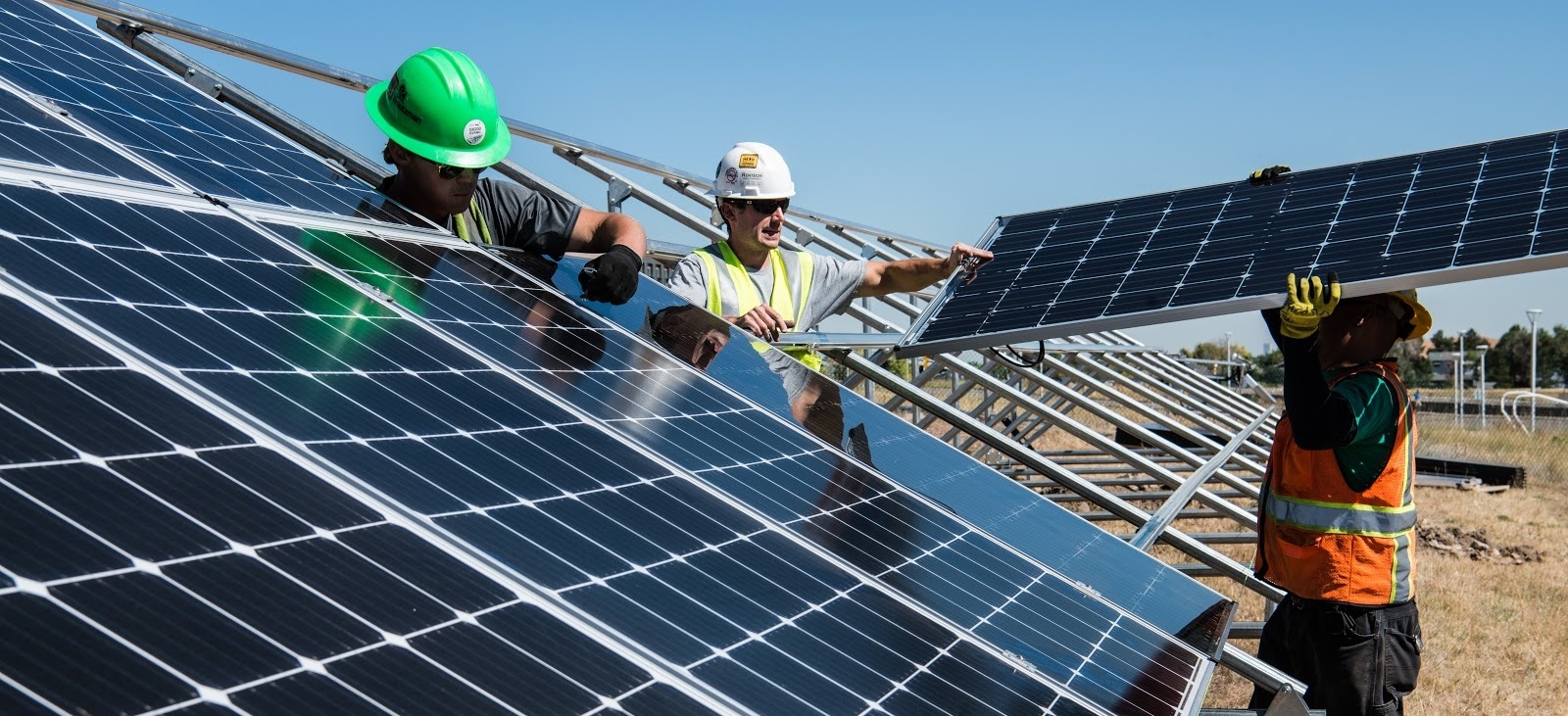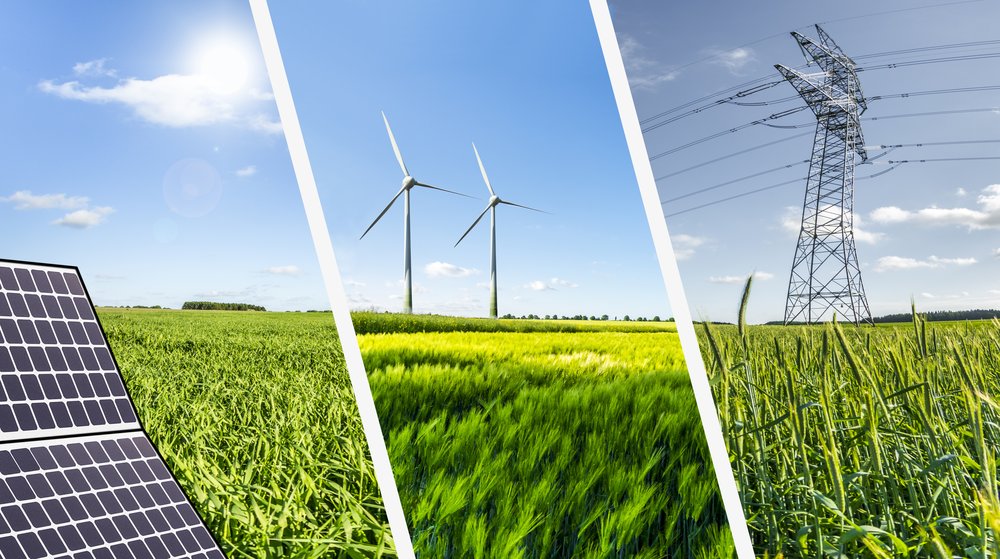For its environmental advantages, renewable energy is frequently regarded as a superior energy source. However, most people are unaware that renewable resources have significant social and economic benefits.
For years, eco-friendly energy sources such as wind, solar, and water, also known as “green energy sources” or renewable energy sources, have been discussed. Many organizations, persons, and governments all over the world support these energy sources. Aside from having no negative environmental impact, these sources of energy are also constantly replenished.
Now that we are gradually embracing renewable energy, it’s worth debating how beneficial it is to our economy. Renewable resources can benefit us in a variety of ways, from offering lower electricity to creating local jobs. Read the information below to learn more about the economic benefits of renewable energy sources:
Renewable energy creates more job opportunities

One of the Economic Benefits Of Renewable Energy is to create much more jobs. The renewable energy industry is much more labor intensive than the fossil fuel industry, which is generally mechanized and capital intensive. Humans are required to install solar panels, and technicians are required to maintain wind farms.
This means that for every unit of renewable energy such as wind, more workers are employed than that fossil fuels.
Thousands of jobs are already supported by renewable energy in the US. In 2016, the wind energy industry employed directly over 100,000 full-time-equivalent workers in fields such as manufacturing; project development, operations and maintenance, construction and turbine installation, financial, consulting services, transportation and logistics, and legal. More than 500 factories in the U. S. produce wind turbine parts, and wind power project setups totaled $13.0 billion in investment in 2016.
Growing funding for renewable energy might result in even more job creation. According to a 2009 Union of Concerned Scientists study, a 25% renewable energy standard by 2025 would start creating more than 3 times as many jobs (more than 200,000) as generating an equivalent value of electricity from fossil fuels.
Local governments benefit from clean energy as well, most often through property and income taxes, as well as other fees from renewable power owners. Landowners receiving rental payments tend to range from $3,000 to $6,000 per megawatt of generation capacity, and also payments for power line rights of way and road rights-of-way, are standard.
They may also be paid compensation based on the annual revenue of the project. Farmers, as well as rural landowners, can supplement their income by producing feedstock for biomass power plants.
Renewable energy produces no emissions.
The use of fossil fuels to generate electricity results in significant greenhouse gas emissions. In the U. S., fossil fuel-generated electricity is responsible for 27% of total greenhouse gas emissions. This includes the addition of carbon dioxide, methane, nitrous oxide, and fluorinated gases.
The environmental and Economic Benefits Of Renewable Energy resources are obvious: electricity produced by renewable resources such as wind turbines and solar panels produces no emissions or air pollution.
Furthermore, the amount of renewable energy such as wind is increasing. Wind energy of approximately 23 gigatonnes (GW) and solar energy of approximately 14 GW will be appended to the electricity grid.
To put this in context, one gigawatt is comparable to the energy of 1.3 million horses — or approximately 110 million LED lights.
Renewable Energy Reduces Carbon Footprint

We’re all becoming more conscious of how our acts affect the environment. There’s more to it than straws as well as sea turtles. Almost every decision we make has an impact on the environment, from the clothes we buy as well as the food that we eat to the electricity which powers family movie night. We may simply be unaware of it.
Your carbon footprint, a unit of measurement used to calculate your impact on the environment, is comprised of your daily decisions. As you might expect, using renewable energy in your home reduces your carbon footprint by “offsetting” or substituting zero-emissions energy sources such as wind and solar for the need for fossil fuel emissions.
As a result, rethinking your home’s energy source is a significant solution to reducing your footprint. The energy industry validates the legitimacy of renewable electricity through certs of authenticity known as renewable energy credits. At Chariot, we not only use these to confirm that your electricity has been 100 percent renewable, and we also start creating our certificates but we own our solar photovoltaic farm. It’s truly a win-win situation.
Renewable energy helps to reduce harmful air pollution.
When fuels are burnt to generate electricity, they respond with oxygen to produce nitrogen oxide, also known as NOx, a risky greenhouse gas. The gas not only causes smog and acid rain, but it also chemically reacts to generate ground-level ozone, a toxic air pollutant. Stratospheric ozone, also recognized as the ozone layer, shields us from the sun’s harmful UV rays. Ground-level as well as tropospheric ozone, on the other hand, can cause several health issues, including:
- Coughing
- Irritation of the throat
- Inflammation of the airways
- Lung function impairment
- Lung tissue damage
Ground-level ozone is produced by combining sunlight, heat, and organic compounds — specifically, chemicals used and manufactured in the production of pharmaceuticals, paints, and refrigerants.
One of the Economic Benefits Of Renewable Energy is when renewable energy sources generate electricity, they do not emit nitrous oxides. So, renewable energy not only does not emit greenhouse gases, but it also reduces your carbon footprint as well as helps counteract the need for fossil fuel power, which can donate to excess air pollution in cities.
Renewable energy saves water
Almost all energy sources require a large amount of water to function at some point. Traditional energy sources, including coal, natural gas, or nuclear energy, generate electricity by heating water and creating steam, which turns turbines. Each MWh of electricity generated by coal or natural gas requires 60,000 gallons of water. 2
Wind, as well as photovoltaic solar, generate electricity without the use of water. Furthermore, while hydropower is based on water, electricity is caused by the falling or flowing of water from a dam, river, or stream, as compared to the creation of steam through the combustion of materials.
Renewable energy increases better public health

The water and air pollution released into the atmosphere by coal and gas plants has been linked to respiratory issues, heart attacks, cancer, neurological damage, premature death, and a slew of other serious issues.
Pollution affects everyone: according to one Harvard University study, the life cycle costs, as well as public health impacts of coal, are estimated to be $74.6 billion per year. This equates to 4.36 cents for every kilowatt-hour of electricity produced, which is roughly one-third of the average power rate for a typical US home.
The majority of these negative health effects are caused by air and water pollution, which clean energy technologies do not produce. Wind, solar, as well as hydroelectric systems, produce power while emitting no pollutants into the atmosphere. Although geothermal as well as biomass systems produce some air pollutants, overall air emissions are much lower than those produced by coal but also natural gas-fired power stations.
Furthermore, because wind and solar require almost no water to operate, they will not pollute water resources and strain supplies by having to compete with drinking water, agriculture, or other critical water needs.
Conversely, fossil fuels can always have a significant impact on environmental resources: both coal mining and natural gas drilling can pollute drinking water sources, and all thermal power plants, whether powered by coal, gas, or oil, withdraw but also consume water for cooling.
In conclusion about the Economic Benefits Of Renewable Energy
As renewable energy is becoming more widely used over the world, it is worth pausing to consider the Economic Benefits Of Renewable Energy such as the increasing use of solar, wind, as well as other renewable energy resources. So, the Economic Benefits Of Renewable Energy, from providing lower-cost electricity to creating reliable, local jobs and preventing costly issues that may occur with emissions from the combustion of fossil fuels.



